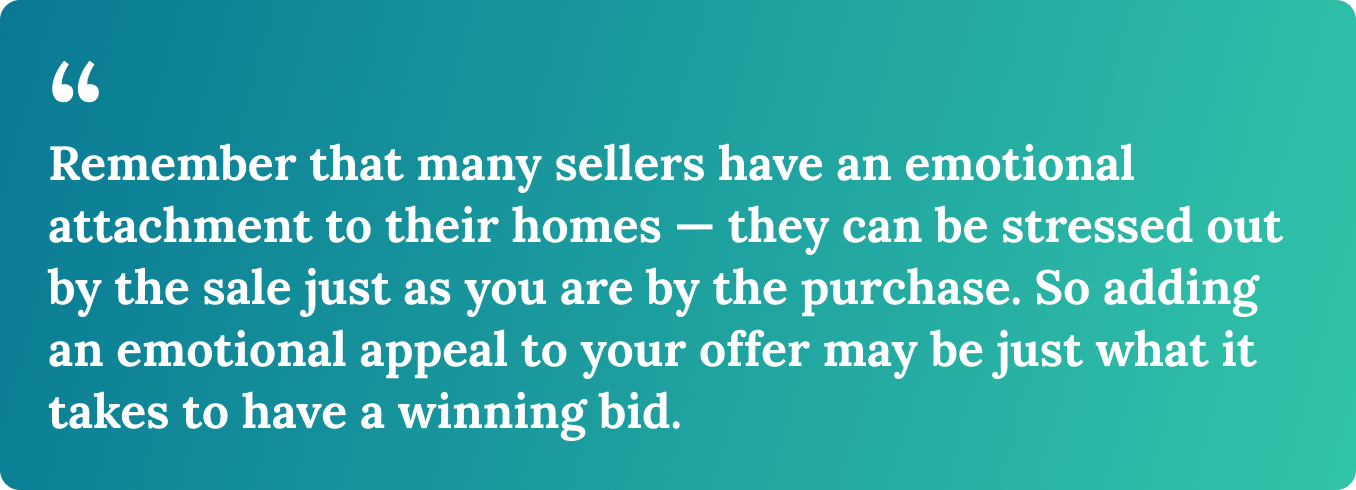Tips to alleviate the stress of buying a house
If you’ve felt stressed while buying a home, you’re in good company. According to a June 2022 survey by Zillow, 50% of homebuyers cried at least once during the process. Younger respondents — who are more likely to be first-time homebuyers — were also more likely to have shed tears over the process.
It’s no wonder why: Buying a home is one of the most stressful life events. It combines high emotions, an often-finicky housing market, and a process that can seem difficult to understand. It’s also a significant financial transaction for most people — perhaps the biggest of their lives. It can be particularly stressful for first-time homebuyers used to the relative simplicity of renting.
The good news is that you can alleviate some of the stress of buying a home with a bit of knowledge and the confidence that comes with it.
Here are several ways to reduce the stress of buying a house:
Make sure buying and owning a home is right for you
First, understand your motivation for buying a home: is it internal or external? When we feel the need to act on external pressure instead of what we truly want, anxiety can set in.
That external pressure can come from family, friends, work colleagues, and even social media. Perhaps your parents keep asking when you’re going to buy a house. Or maybe you see some of your friends doing it. Do your best to filter through the pressure and make sure your motivation for buying a home is genuinely your own.
Make sure you have the necessary financial discipline
Buying and owning a home is a massive undertaking from the standpoint of your personal finances. So having well-developed financial discipline can help you move through the process with less stress.
Disciplined homebuyers calculate how much house they can afford, make a budget, and stick to it while shopping. Meanwhile, they’ll also create and follow a budget for ongoing expenses while setting aside a fund for emergencies.
When applying for a mortgage, your lender will look for evidence of your financial discipline, requiring you to have the following:
• Steady income
• Not too much debt
• Good credit score
• Money for a down payment (especially if you’re applying for a conventional mortgage)
Remember that the lender will want to know that you can afford not only the upfront expenses of buying a home like a down payment, closing costs, and a home inspection, but they’ll also expect you will be able to manage the ongoing costs of ownership, including taxes, maintenance and repairs, and insurance.
Check your credit history
Applying for a home loan when you know your credit report is clean and accurate can help quell your concerns about affordability. Yet, a 2021 study by Consumer Reports showed that more than one-third of the participants found errors in their credit reports!
Such errors can impact your interest rate, terms, and loan approval amount. So before applying for a mortgage, give yourself some time to request a free copy of your credit report from the three major bureaus. Review them carefully and dispute any errors you may find, so you can get the best interest rate possible when it’s time to apply for a mortgage.
Learn more about how credit affects mortgage rates.
Get your documentation in order
You’ll need to provide a wide range of documentation to prove your suitability for a home loan. So don’t wait around for the lender to request these documents only to have to do a mad (and stressful) scramble to pull everything together. Instead, start gathering this documentation early in the process. Create a file in a secure location, and have it ready to go when the lender makes their request.
While the specific documents requested vary by lender, they typically include the following:
• Your two most recent tax returns (You may be asked to sign Form 4506-T, which gives the lender permission to request your tax information from the IRS)
• Recent paystubs or your most recent W-2 statement
• If self-employed, proof of income such as 1099 statements
• Retirement/investment account and bank statements
• If you’ve received a significant amount of money as a gift, a letter explaining your relationship to the giver and confirming that the money is not a loan
• A written statement explaining any negative marks on your credit report
Get pre-approved for a mortgage
Mortgage pre-approval gives you greater confidence in what you can afford. Assuming there are no significant changes to your financial situation, you should be able to get through the final approval process with much less stress. It also indicates to both your real estate agent and sellers that you’re a serious buyer, which may help the home shopping process flow a bit more smoothly. Especially in a competitive housing market.
While faster and less complicated than a final approval, pre-approval still involves a credit check and completion of a preliminary mortgage application (you’ll need to provide information about your income, debt, and savings). If you’re pre-approved, you’ll receive a letter stating the amount you can access for a loan.
Work with a real estate agent
You probably wouldn’t want to go into the wilderness without an experienced guide. So why go into the “wilderness” of home buying alone?
Helping you sift through properties to find the home you want is just the beginning of how a real estate agent can help ease the stress of home buying. An agent can help you optimize your offer to increase your chance for success, act as an intermediary in your communications with the seller, navigate the closing process, locate needed services such as a title company and home inspector, and be at your side during the final closing. Beyond that, an agent can answer your questions and listen to your concerns.
And remember that the seller typically pays the agent’s commission. So working with an agent shouldn’t add to your financial considerations when buying a home.
The best place to find a real estate agent? Visit AmeriSave Realty to find a trusted real estate agent near you.
Prioritize your needs for a home
Before you attend a showing or open house, or even start to look at online listings, consider putting together a list of your “must-haves” and “nice-to-haves.” Prioritizing your needs in this way can help lower your stress in a couple of ways.
First, it gives you a foundation for decision-making throughout the process, helping you focus on what really matters. You’ll have a better understanding of when and where to be flexible, which can help make the process less nerve-wracking.
Second, a list can help your real estate agent provide advice and narrow down the number of homes they show you. That will save you time and effort, and ultimately reduce your stress.
Must-haves may include things such as:
• Priced under $350,000
• Minimum 2,500 square feet
• Within a 30-minute drive from work
• 4 bedrooms / 3 bathrooms
• Highly rated school district
Nice-to-haves may include things such as:
• Hardwood floors
• Finished basement
• Deck or patio
• Attached garage
• Walk-in closets
For more details, checkout our homebuyers guide for finding the right home.
Think beyond price in your negotiations
One of the most stressful points in buying a home is making the offer (and the follow-up negotiations) . This can be especially true in a seller’s market, where eager buyers may find themselves in bidding wars that end up well over the listing price. While you need to heed your budget, you want to make a competitive offer. This conflict can cause a lot of stress.
The key is to realize that money is not the only bargaining chip.
While it can carry some risks, many buyers in competitive markets will forego contingencies such as the home inspection or appraisal to make their offer sweeter.
Another tactic to help the seller accept your offer is to add emotional appeal. In addition to the normal details of the standard offer letter, include a cover page that tells the buyer a little about yourself/your family, what you love about the house, and how you’ll give the home the same care and attention that the seller has given it over the years.

You can find numerous attractive, inexpensive offer-letter templates on sites like Etsy. These allow you to personalize your offer in writing and even include photos of you and your family.
The bottom line is that money isn’t necessarily everything regarding negotiations. A little flexibility and creativity may go a long way. These tactics can often help you gain a leg up on the competition, thus relieving a bit of the hassle of being in a bidding war with other buyers.
Stay on top of your closing tasks, and take a deep breath
Another very stressful stage of the process is closing. There’s much for you to do, such as apply for the mortgage, find a title company, arrange a home inspection, and more. But there’s also a lot of waiting: for the loan approval, for the inspection results, for the appraisal, for the results of the title search and more. Waiting just gives you more time to stress and worry.
To help alleviate stress, make sure you’re handling all of your closing tasks. Don’t delay if your mortgage lender has a question or requests additional documentation. Make a list of what you need to do (once again, your real estate agent can help), and get those things done. If you need more details on all that goes into closing, checkout this guide for the home closing process .
If you still find yourself struggling with waiting, follow some tried and true stress management tips. Exercise, eat a healthy diet, get together with friends for an evening out, or take a yoga class. Take a deep breath because the end is in sight.
Ask questions until you understand
Uncertainty and misunderstanding can generate a lot of stress. And according to a recent survey, only 26% of Americans feel they understand the home-buying process well. So if you have a few questions about it, you’re not alone.
The good news? The answers usually aren’t far away. Your real estate agent can be your first stop. As your advocate in the process, part of their job is to make sure you understand the many steps of buying a home. Your agent can also be an intermediary for any questions you have for the seller.
Your AmeriSave mortgage banker can also be a source of information, particularly about your mortgage application, the underwriting process, or your preapproval and final approval.
Finally, check out AmeriSave’s Knowledge Center. This helpful site includes answers to frequently asked questions, mortgage calculators and tools, and a wide range of articles on home financing.
Keep an eye on the prize
Homebuying is a complicated endeavor, and it’s okay to be a bit stressed during the process. Just remember that there are things you can do and people you can rely on to help build your confidence and alleviate your stress. The good news is that this all ends with you achieving your goal of being a homeowner and having a place to call your own.
Frequently asked questions: Alleviating the stress of buying a house
Is buying a house stressful?
Buying a house can be stressful, especially if you’re a first-time homebuyer. A June 2022 survey by Zillow revealed that half of homebuyers cried at least once during the process! However, there are strategies you can use to build confidence and alleviate some of that stress in the homebuying process.
Why is buying a house so stressful?
Home buying is a significant financial transaction, often involving six-figure sums. The process is complex and not always easy to understand. You may have your visions of buying a dream home butt up against the realities of bidding wars in a seller’s market and the requirements of your mortgage lender.
How can I reduce stress when buying a house?
There are many ways to help reduce stress when buying a house. First, make sure your motivations for buying are your own (you’re not being pressured by family or peers). Make sure you have the financial discipline to be a homebuyer and homeowner. Enlist the help of a professional real estate agent. And if you’re trying to buy a house in a competitive market, consider adding an emotional appeal to your offer.
What is the most stressful part of buying a house?
For many homebuyers, making an offer on a home is a very stressful time, especially during a seller’s market. Because it’s important to stick to your homebuying budget, consider non-financial tactics to sweeten your offer. These include dropping contingencies, offering all cash, and appealing to the seller’s emotions. A real estate agent’s support and advice can be very helpful during this process.







